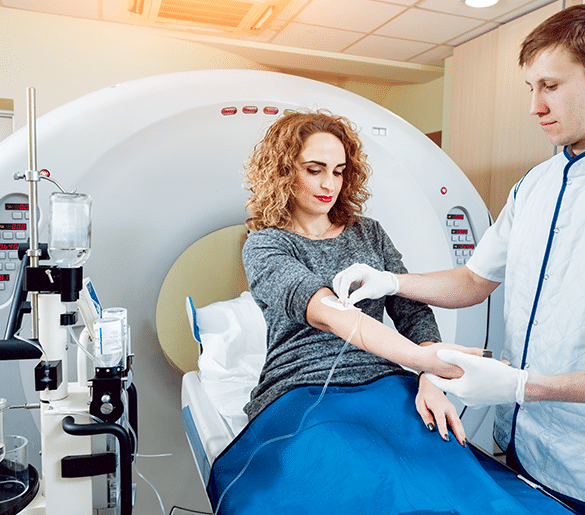Disc replacement surgery, also known as artificial disc replacement or disc arthroplasty, is an innovative surgical procedure designed to alleviate chronic back pain caused by degenerative disc disease. While it presents a promising solution for many, understanding its benefits and risks is essential for anyone considering this option.
What is Disc Replacement Surgery?
The procedure involves removing a damaged or degenerated intervertebral disc and replacing it with an artificial disc. This artificial device is designed to mimic the natural disc’s function, allowing for movement between the vertebrae while relieving pressure on surrounding nerves. Disc replacement surgery is most commonly performed in the cervical (neck) and lumbar (lower back) regions of the spine.
Benefits of Disc Replacement Surgery
1. Pain Relief
One of the primary benefits of disc replacement surgery is significant pain relief. Many patients experience a reduction in chronic pain following the procedure, often returning to their daily activities with improved comfort.
2. Improved Mobility
Unlike spinal fusion, which immobilizes the affected vertebrae, disc replacement allows for a greater range of motion. This preservation of movement can lead to improved overall function and quality of life.
3. Shorter Recovery Time
Disc replacement surgery typically offers a quicker recovery compared to traditional spinal fusion. Many patients are able to walk and engage in light activities within a few days post-surgery, while full recovery may take several weeks.
4. Reduced Risk of Adjacent Segment Disease
Adjacent segment disease occurs when the discs adjacent to a fused segment become degenerated due to increased stress. Since disc replacement preserves motion at the treated level, the risk of adjacent segment problems may be reduced.
5. Improved Quality of Life
Patients who undergo successful disc replacement often report a significant enhancement in their quality of life. This improvement may stem from decreased pain, increased mobility, and the ability to resume activities they enjoy.
Risks of Disc Replacement Surgery
While the benefits of disc replacement surgery are compelling, potential risks must be carefully considered.
1. Surgical Risks
As with any surgery, disc replacement carries inherent surgical risks, including infection, bleeding, and anesthesia complications. These risks are typically low but should be discussed with a healthcare provider.
2. Device-Related Complications
There is a possibility of complications related to the artificial disc itself, such as wear and tear, dislocation, or even failure of the device. In some cases, patients may require additional surgeries to address these issues.
3. Nerve Damage
Although rare, there is a risk of nerve damage during the procedure, which can lead to numbness, weakness, or pain in the limbs. Proper surgical technique and technology can mitigate this risk, but it remains a consideration.
4. Not Suitable for Everyone
Disc replacement surgery may not be appropriate for all patients. Factors such as age, overall health, and the extent of degeneration can influence eligibility. A thorough evaluation by a spine specialist is necessary to determine if this procedure is the best option.
5. Limited Long-Term Data
Although the technique has shown promising results, long-term data on artificial disc replacement is still limited compared to traditional fusion techniques. Patients should discuss the available evidence with their surgeon.
Who is a Candidate for Disc Replacement Surgery?
Ideal candidates for disc replacement surgery are typically those who have:
- Persistent back pain due to a degenerated disc
- Not responded to conservative treatments such as physical therapy, medication, or injections
- No significant spinal deformities or other complicating factors
- An active lifestyle they wish to maintain
Before surgery, patients undergo comprehensive evaluations, including imaging studies and physical examinations, to determine if they are suitable candidates.
Preparing for Disc Replacement Surgery
Preparation for the procedure involves several steps:
-
Consultation: Patients should have detailed discussions with their spine surgeon about the procedure, benefits, risks, and expectations.
-
Preoperative Testing: This may include blood tests, imaging studies (like MRIs or X-rays), and other evaluations to ensure overall health and suitability for surgery.
-
Medication Management: Patients may need to adjust or stop certain medications, especially blood thinners, leading up to the surgery.
-
Lifestyle Changes: Adopting a healthier lifestyle, including diet and exercise, can improve surgical outcomes and recovery times.
Recovery After Disc Replacement Surgery
Recovery from disc replacement surgery varies by individual but generally involves:
-
Immediate Postoperative Care: Patients are usually monitored for a short period before being discharged.
-
Physical Therapy: Engaging in a structured physical therapy program is crucial for regaining strength and mobility.
-
Gradual Return to Activities: While many can resume light activities within days, more strenuous activities may take longer.
-
Follow-Up Appointments: Regular follow-ups with the surgeon are essential to monitor healing and address any concerns.
Disc replacement surgery offers a viable solution for individuals suffering from chronic back pain due to degenerative disc disease. While it presents numerous benefits, including pain relief, improved mobility, and a quicker recovery time, potential risks must also be taken into account. A thorough evaluation by the Best Neurosurgeon in Indiais critical to determining if this surgery is the right choice for you. Understanding both the advantages and limitations will help patients make informed decisions and set realistic expectations for their recovery journey. If you’re considering disc replacement surgery, take the time to discuss your options with your healthcare provider to ensure the best possible outcome.
read more:



